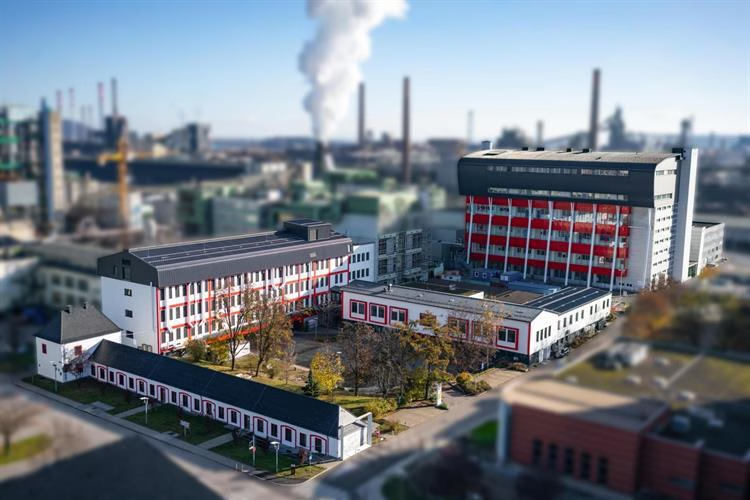
The popular blister packs are highly functional material composites and are therefore difficult to recycle. To date, they have been thermally recycled after use. In the "BlisterCycle" project, four Upper Austrian companies are working together with the Transfer Center for Plastics Technology (TCKT) on a sustainable, globally expandable recycling concept for composite blister packs. The pharmaceutical company Takeda produces important drugs for the treatment of rare and complex diseases at its Linz site and is one of the partners in the "BlisterCycle" cooperation project. The drugs are sterilely filled into syringes or ampoules and packaged in special blisters. These consist partly of a transparent plastic molded part made of so-called PET-G and a polyethylene film (PE) with which they are thermally sealed. PET-G is highly transparent and therefore looks particularly appealing. In addition, it is tougher and more resistant to breakage or impact than PET.
separating the material composites
The in-house production waste cannot currently be recycled and ends up in thermal recycling because these material composites made of PET-G and PE cannot be sufficiently separated and then recycled. In addition, this special PET-G used for medical applications would disrupt the conventional - now well-established - PET waste cycle. This is set to change in the future, as Anja Gosch, material expert for packaging and functional testing at Takeda in Linz, emphasizes: "In the project, we are exploring how we can separate PET-G and PE as cleanly and effectively as possible. Even small amounts of foreign material change the properties of the resulting recyclate.“ The project group also wants to keep an eye on costs and develop a recycling solution that is cheaper than purchasing new goods.
Proper waste treatment
Dikatech GmbH operates a technical center in Wippenham with cutting mills and pelletizing systems. The shredding of plastic waste from a wide range of material classes is part of the company's core business. The company is therefore an ideal project partner and is responsible for the professional shredding of PET-PE blister waste. "With the help of special processing technology, the recycled PET material is to be cleanly separated from PE. Special additives should then make it possible to return the individual material flows to material recycling and thus make them fully recyclable in the future. The ultimate goal is to reuse them to produce PET-G films with food contact approval, where the sealing layer adheres just as well or can be removed again as with new goods.“, explains project coordinator Hannes Meier from the consulting company M2 Consulting the many challenges.The production of PET-G films from recycled materials according to GMP standards for pharmaceutical applications is also challenging for us. However, it creates experience that we can also transfer to other materials. This opens up opportunities for greater added value“, adds Vitaly Ivanov from Industrietechnik Filzwieser.
Challenges of PE
The project partners also have high demands on the recycled polyethylene.Ideally, it should be possible to extrude it into sealing film again. In order to achieve good sealing properties, we also need to find suitable additives that reduce the melting behavior of the PE and allow good adhesion to PET during short-term application", says Meier. To this end, the project group is testing chemically reactive additives in the laboratory of R&D partner TCKT, which allow the PE to be processed later on blown or cast film lines. According to Meier, further use in conventional PE film applications should be possible in any case, despite a low PET content.
Research for Industry Solutions
For the time being, the project group is working with Takeda’s own blister waste, but “BlisterCycle” has great potential.”If the project is successful, it should enable a selective collection and return system to be implemented by customers worldwide. This regional project is therefore another important building block for sustainable plastic solutions for the pharmaceutical sector.“, emphasizes plastics cluster manager Wolfgang Bohmayr.
